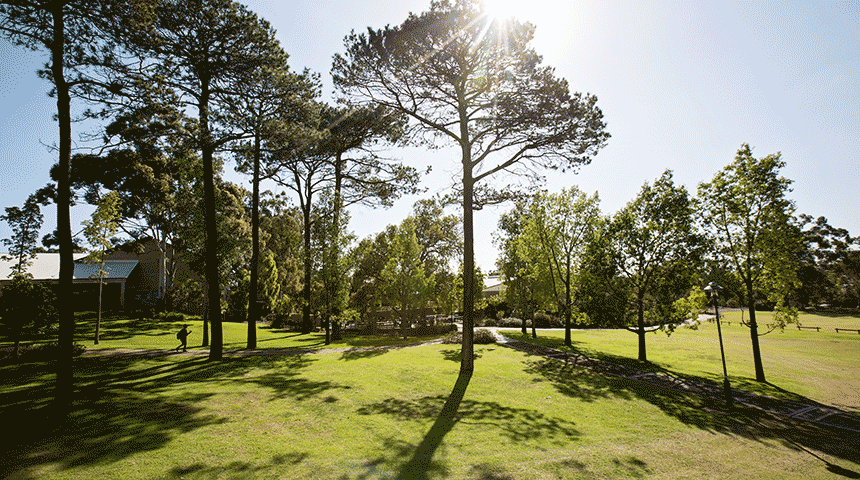
Combine your passion for the environment and science and explore how you can make an impact on preserving ecosystems with a science degree from Murdoch University.
Ecosystems are subject to constant change, either by naturally occurring dynamics or by human influence. While natural changes can be managed by our planet's ecosystem, human impact is often irreversible and damages the environment.
A degree in Environmental and Conservation Sciences equips students with the hands-on experience needed to help tackle environmental challenges on a local, national and international level to protect our planet.
Why study at Murdoch University?
Murdoch University is home to its very own ecosystems. You can obtain real-word experience at our on-campus conservation category wetlands and Banksia Woodland Reserve, where you can spot endangered Carnaby’s Black Cockatoo, Forest Red Tailed Black Cockatoo, long neck turtles and the elusive Southern Brown Bandicoot, or quenda while exploring.
Learn in industry-standard laboratories and participate in real field research projects across Western Australia, including our iconic coastlines and our diverse bushlands.
Where can your degree take you?
Your options after graduating are diverse, but they have one thing in common: you will make an impact with any career you choose.
You might find yourself working for a non-government organisation (NGO), such as conservation or community organisations, universities or scientific research organisations - you can also take on a government role at a local or international level.
Some job opportunities include, but are not limited to:
- Marine Biologist
- Fisheries Officer
- Scientist in nature-based tourism
- Environmental Consultant
- Conservation and Wildlife Officer
- Mining Rehabilitation Officer
- Atmospheric or Climate Change Scientist
- Oceanographer
Explore more options
You might also choose to expand your career prospects even further with a double major in a complementary scientific area or a double degree in another discipline, such as law, business, management or communications.
Combining majors for a unique course offering was a big selling point for the undergrad student Chris' decision to study at Murdoch. The Student Ambassador for Marine Biology studies a double major in Marine Biology and Conservation and Wildlife Biology and hopes to educate others on what can be done about the environmental crisis in the marine, wetland and bushland environments.